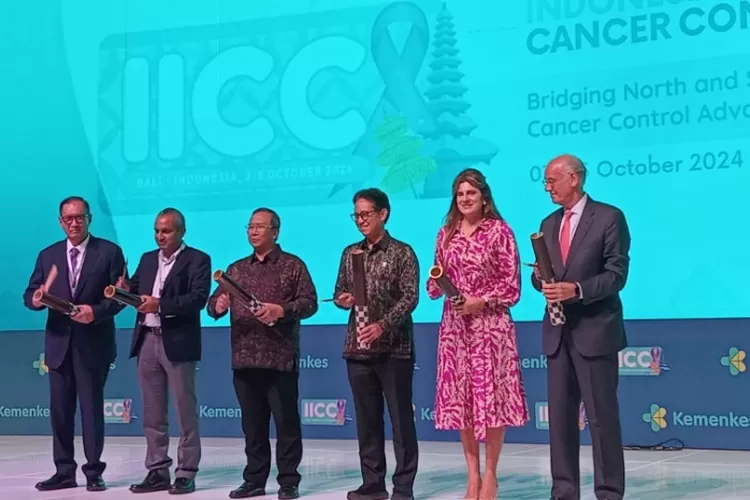The government of Indonesia has officially launched the “National Cancer Control Plan 2024-2034” at the 2024 Indonesia International Cancer Conference (IICC), which took place in Bali on Thursday, 3rd of October.
The Indonesian Minister of Health, Budi Gunadi Sadikin, explained that the newly authorised plan marks a significant milestone in the fight against cancer, which has long been regarded as a deadly disease in Indonesia. Furthermore, according to data from the Social Security Administrator for Health (BPJS Kesehatan) in 2023, cancer is classified as a catastrophic disease, with financing amounting to around Rp5.9 trillion.
The plan outlines six main strategies aimed at strengthening efforts to prevent, detect, treat, and manage cancer: (i) promotive and preventive measures; (ii) early detection and screening; (iii) increased access to cancer services and management; (iv) strengthening the cancer registry and research; (v) partnerships with stakeholders as well as governance, and; (vi) accountability for the implementation of cancer prevention and control programmes.
“One of the main focuses of this plan is prevention and early detection. The government will aggressively conduct educational campaigns to raise public awareness about the importance of a healthy lifestyle and early detection,” Sadikin stated in a press briefing on Thursday.
To accelerate case finding and ensure more effective cancer treatment, the Indonesian government is targeting 70% of the population for screening and early detection. This includes cervical cancer screening using the IVA method (visual acetic acid inspection) for women aged 30-50 years. Additionally, the government plans to conduct lung and colorectal cancer screenings, with specific age group targets.
“Cancer is a disease greatly feared by the public. However, with current technology, as long as it is detected early, 90% of cases can be treated, managed, and cured,” Sadikin added.
To support cancer treatment, the Indonesian government is committed to expanding hospital facilities and medical equipment nationwide. By 2027, the government aims to add diagnostic equipment, including 276 mammogram machines, 236 CT scanners, 34 SPECT-CT scanners, and eight PET-CT scanners. Furthermore, the government plans to enhance the capabilities of hospitals in 514 districts or cities, as well as in 38 provinces across Indonesia, enabling them to offer comprehensive cancer services, including palliative care.




